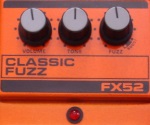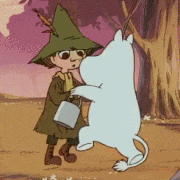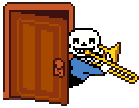|
Foaming Chicken posted:drat, I guess the comparisons to mp3s are accurate. It wasn't too long ago that I saw a textbook pdf that had been hand-scanned in B&W. They still do that. If it is available in a digital format, they just buy it (or check it out) and break the DRM. If it isn't available in a digital format, they will just scan it (or even OCR the scans) Call Me Charlie fucked around with this message at 00:05 on May 2, 2011 |
|
|
|

|
| # ? Jun 9, 2024 11:21 |
|
As an aside to the whole library/publisher/pirate discussion, if I worked at a library at all, I would download half of Gutenberg.com, ask for a small portion of the library budget, and start offering DVDs chock full of public domain content for donations. As in, "hey, sorry publishers are only allowing us to lend out one e-copy of Twilight at a time, but would you like to donate a couple bucks and take home a DVD with 2500 books on it?"
|
|
|
|
doctorfrog posted:As an aside to the whole library/publisher/pirate discussion, if I worked at a library at all, I would download half of Gutenberg.com, ask for a small portion of the library budget, and start offering DVDs chock full of public domain content for donations. Some libraries do (in Australia anyways) and have done since the 90's in CD-ROM format. About 6,000 titles, I think. But remember, individual titles need to be entered into their system, possibly catalogued to conform to in house rules as well as their collection management system. It's much easier on resources to go Click here: http://www.gutenberg.org/ebooks/search.html/?default_prefix=authors Knock yourselves out! I used to work in libraries.
|
|
|
|
Does anyone else get daily newspapers on a nook or kindle, and how bad are they? It seems like every other Oregonian I get (Kindle edition) is hastily slapped together from an OCR or something.
|
|
|
|
|
Javid posted:Does anyone else get daily newspapers on a nook or kindle, and how bad are they? It seems like every other Oregonian I get (Kindle edition) is hastily slapped together from an OCR or something. I spent a month reading WSJ, Reuters and Bloomberg on a 1G Kindle while on vacation and it was pretty bad, Economist and other mags were worse. As you'd expect it fares better presenting news where black and white text is fine, and suffers badly presenting news and analysis where colour and graphics are helpful like markets. Navigation is also very clunky compared to a tablet. Kindle et al excel at presenting simple pages full of static text like a novel, they fall down pretty bad with complex layouts, navigation and graphics, e.g. news delivery and magazines.
|
|
|
|
I allow for that, but I mean poo poo like random paragraphs of 'asdgkherityhgeisdhfdshjlghdfjghdfakhd' at the end of articles. And they cut most of the pictures, which is annoying but they tell you up front they do that so whatever.
|
|
|
|
|
Javid posted:Does anyone else get daily newspapers on a nook or kindle, and how bad are they? It seems like every other Oregonian I get (Kindle edition) is hastily slapped together from an OCR or something. I read the WSJ on my nook color and it works out pretty well, as well as magazines like men's health etc. Still waiting for the economist to come to the nook color. Anybody herd any rumors on that?
|
|
|
|
ryan_woody posted:I read the WSJ on my nook color and it works out pretty well, as well as magazines like men's health etc. Still waiting for the economist to come to the nook color. Anybody herd any rumors on that? Yeah but the nook color presents them basically as a pdf and preserves formatting, so of course it looks okay. Think they're talking about e-paper readers because of the general "BLUH BLUH STOP TALKING ABOUT THE NOOK COLOR WE DON'T LIKE YOUR TABLET GARBAGE" vibe of this thread in general.
|
|
|
|
I got my local paper for a while on kindle, several months back. It didn't have any real problems that I could tell (aside from 1/4 - 1/3 of it was the sports section, but that's how it always is). v
|
|
|
|
Javid posted:Does anyone else get daily newspapers on a nook or kindle, and how bad are they? It seems like every other Oregonian I get (Kindle edition) is hastily slapped together from an OCR or something. I get the NY Times and it's very professionally formatted.
|
|
|
|
New Yorker on the Nook classic, also very well formatted. Pretty easy to navigate but I mostly read it like a book.
|
|
|
|
I've never had an issue with the San Francisco Chronicle on my Kindle. No typos, formatting fine, navigation works, etc.
|
|
|
|
So my Kindle arrived Thursday evening, and I did the usual ooh, ahh, and everything with it, got it set up to use the wireless at home, showed it off, loaded on a large collection of books. I left it to charge overnight; it was showing about half battery when I did it, down from around 3/4. Unplugged it the next morning and aside from some brief moments plugged in to fiddle with collections through Calibre, it's been unplugged since. This afternoon I was out and it gave me a low battery warning. Wireless has been on the whole time. Is this a reasonable speed of depletion given extra-heavy 'ooh, new toy' usage, or should I be calling Amazon up about it?
|
|
|
|
Wireless eats up battery power quicker than normal so keep that off as much as you can. The real issue though is every time you add new books the Kindle has to index them for searchability. Most people when they first get it add a load of books and all that indexing takes a significant amount of battery power to do. It'll be fine once it's done and adding books a couple at a time later on won't have this large an effect. If you want to check to see if it's still working type in a gibberish word on the Home screen and press enter and it'll show you if there are any books still being indexed.
|
|
|
|
Well, going by the specs, it's supposed to be 10 days even with the wireless on (which is fine by me, even if it fall short a day or two), and it hasn't even been close to that. I'm done with adding big piles of books though, so we'll see how it goes from there.
|
|
|
|
dopaMEAN posted:I'd like to see that! Linked because it's kind of big. The size is also why I didn't prit it out for work. dopaMEAN posted:My fiance is in library school right now, and we talk about this kind of thing a lot. I've been told that ebooks cost us about as much as physical ones do. I've seen people go on about how they cost so much less to produce and I've seen it argued that they cost just as much. There are still costs involved. The author has to get paid. The manuscript that's turned in has to be proofed and edited (multiple times usually) so an editor has to be paid. The book has to be formatted and a cover has to be made. Cory Doctorow has been doing a column for Publishers Weekly about the process of self-publishing a book. Even though it's obviously different than what major publishers do, a lot of what he does applies to them as well. They're good reads if you want to know more about the various things that go into book production. doctorfrog posted:As an aside to the whole library/publisher/pirate discussion, if I worked at a library at all, I would download half of Gutenberg.com, ask for a small portion of the library budget, and start offering DVDs chock full of public domain content for donations. It wouldn't be worth the time or the cost of CDs. The classics aren't as big a draw as some people want to think they are. Sure, there are people who find Project Gutenberg and go all starry-eyed and lose themselves in all the writing, but they're pretty rare. What I've said before about people just being happy reading any ebooks doesn't apply to public domain ones, it seems. To read those books on a device, people would still have to go through a few steps. It wouldn't save them any time and they'd be overloaded by choices. If they don't like the formatting (Project Gutenberg books aren't nearly as pretty as the ones you have to pay for), we'd hear about it. I was hoping that when Oprah named her new book club selections, there'd be a run on Dickens and we could show off Project Gutenberg and get people into it that way. No one wanted the books, though.
|
|
|
|
neongrey posted:So my Kindle arrived Thursday evening, and I did the usual ooh, ahh, and everything with it, got it set up to use the wireless at home, showed it off, loaded on a large collection of books. I left it to charge overnight; it was showing about half battery when I did it, down from around 3/4. neongrey posted:Well, going by the specs, it's supposed to be 10 days even with the wireless on (which is fine by me, even if it fall short a day or two), and it hasn't even been close to that. I'm done with adding big piles of books though, so we'll see how it goes from there. Like he said, when you add new books, the Kindle has to index them for the search feature. It does this in the background and also when it is in sleep mode. That means it is always working until it is done indexing. Give it a few days. Call Me Charlie fucked around with this message at 04:34 on May 3, 2011 |
|
|
|
Pvt. Parts posted:So I live in Canada and I am looking for an affordable e-reader. The Kobo caught my attention for being cheap, stripped-down, and yet still very usable. I work for Kobo and can help you with these questions. Yes, you can use Calibre to manage your file system to an extent. About the only reason that comes off the top of my head for doing this is to remove books from your 'I'm Reading' list in bulk. The Kobo 1 can support a 4GB SD card, while the Kobo 2 can use a 32 GB one. And the picture quality on the Kobo 2 is pretty good - I don't know how it is on the Kobo 1 as we haven't got any of those floating around in the office. It's a decent reader and does exactly what it says on the tin. There are definitely worse choices, believe me. fishmech posted:Also Kindle has a much wider book selection for it and has actual good customer service. We are working on fixing the customer service. Edit: It's very easy to submit a book request. I don't know how long it takes for us to get new content, but there's definitely a way to tell Kobo what you'd like to be reading. Mad Hamish fucked around with this message at 04:40 on May 3, 2011 |
|
|
|
I think the people claiming that there are very little costs involved with publishing ebooks are thinking of it in terms of an ebook being published side by side with a paper book. You do all the editing and formatting for a paper book, and then as well as printing it off you send a copy of the file off to your ebook publisher. In this sense, there are very few costs because all of them went into the paper book anyway. But if you were to write a book from scratch and only publish it as an ebook, all of those editing and formatting costs would need to be paid, as Devi said. The only real costs you can skip with an ebook are probably printing and shipping, and I wouldn't be surprised if per book printing and shipping aren't a very high percentage of costs.
|
|
|
|
My faithful Sony PRS-505 finally died  Looks like a broken substrate, not sure how it happened. But considering I've had it for over three years and have used it pretty much every day it had a fairly good life. I was thinking of upgrading to a new Kindle recently and ended up getting one for my mother-in-law instead. So now I guess it's my turn. I still don't like the look of the Kindle, and the keyboard annoys me because I will only be using it for reading and I don't need it. But it seems like the sensible choice in every other department (price, spec, features that matter to me). We also have less choice in the UK. Probably just getting the wifi version.
|
|
|
|
Gravy Jones posted:My faithful Sony PRS-505 finally died As stupid as it sounds, the keyboard space on the Kindle is a great place to hold the device. Even if they didn't include the keyboard, I'd want that space there for holdin'. So they might as well have a keyboard there, if they're going to have the space.
|
|
|
|
Centipeed posted:I think the people claiming that there are very little costs involved with publishing ebooks are thinking of it in terms of an ebook being published side by side with a paper book. Printing and shipping costs for a physical book are pretty high, especially if it becomes popular, or if it completely bombs, and you're stuck having already paid for a large print run. And those costs simply never exist at all for ebooks. If we just make a basic and probably wrong assumption that you need to spend $300,000 to finish a book, period: Physical book: $300,000, then cost of first print run of say 10,000 copies at $4 a copy to print adds $40,000. Assume shipping and otherwise transport and handling costs of $1 a copy for an additional $10,000. If book is popular enough to warrant reprints, add back on the additional costs for next print and ship cycle. If it was originally hardcover and warrants a paperback release, add on charges for at least a little bit of design work to match the new format and more printing and shipping costs. No matter how many you sell, you still need to cover the pre spent print and shipping costs, since books aren't printed on demand, so when you tick over from 9999 sold to 10000 sold, you need to pay for another 10,000 (or 1000 or whatever) to be printed and ship to sell one more copy, not the cost of a single book. If you sell 1 million copies, you have to have, say, spent $5 million on physical production and handling + $300,000 on the original work of writing and editing. Ebook: $300,000 flat out. Once you've made back the first $300,000 it's pure profit on the rest thanks to no ongoing production costs. If you sell 1 million copies, your only cost remained the initial $300,000. Even if it cost a dime per copy to print and distribute the paper version of the book, the cost would still be $400,000 for paper on a million copies versus $300,000 for digital
|
|
|
|
fishmech posted:Physical book: $300,000, then cost of first print run of say 10,000 copies at $4 a copy to print adds $40,000. Printing 10,000 copies would in no way cost $4 a book. It's likely that it costs less than a dollar. Printing very small print runs with a much more expensive printing method than big publishers use still doesn't cost anywhere like $4 a book. Believe me, I'm speaking from experience In addition, $1 a copy for shipping is also waaaay more than it actually costs.
|
|
|
|
There was some blog post a while back that broke down the average cost of a book and the printing/shipping part actually wasn't all that big, it accounted for maybe 10% - 15% of the total cost. Most of the price was tied up in the author, editors, layout/design, marketing, legal, etc. Obviously the breakdown would vary based on the kind of book it is, the relative fame of the author, whatever but actually putting ink on paper and then moving that paper around the country wasn't a huge sunken cost. Dr Monkeysee fucked around with this message at 17:46 on May 3, 2011 |
|
|
|
maxnmona posted:Printing 10,000 copies would in no way cost $4 a book. It's likely that it costs less than a dollar. I know I was using inflated figures in all parts of it. Even if the cost to print and ship a paper book was merely 10 cents the publisher still has ongoing costs to sell more copies versus no ongoing costs for digital, and has to price to try to be able to cover for not selling a full print run in paper.
|
|
|
|
fishmech posted:I know I was using inflated figures in all parts of it. Even if the cost to print and ship a paper book was merely 10 cents the publisher still has ongoing costs to sell more copies versus no ongoing costs for digital, and has to price to try to be able to cover for not selling a full print run in paper. If it cost 10 cents to ship and print, then you're talking a total of an extra $1000 for your imaginary print run of 10,000. That's nothing. In larger terms, it's basically no difference at all.
|
|
|
|
Monkeyseesaw posted:There was some blog post a while back that broke down the average cost of a book and the printing/shipping part actually wasn't all that big, it accounted for maybe 10% - 15% of the total cost. Most of the price was tied up in the author, editors, layout/design, marketing, legal, etc. I thought this was the case (I've probably read an article on it in the past, which is informing my opinions sub-consciously). So am I right in saying you can't argue that an eBook should be cheaper due to lack of printing and shipping costs, because even if the difference WERE taken into account the eBook would only be $1 cheaper or so, all other things being equal? ahobday fucked around with this message at 19:13 on May 3, 2011 |
|
|
|
Centipeed posted:I thought this was the case (I've probably read an article on it in the past, which is informing my opinions sub-consciously). Once you sell enough ebooks to cover initial costs, it's pure profit. Once you sell enough physical books to cover costs, you still need to cover additional printing costs, shipping, etc. Physical books should always cost more. Not to mention the fact that ebooks ARE cheaper: buy a brand new average book in its initial hardcover release for $20 to $40 versus ebook that same day for $9.99.
|
|
|
|
fishmech posted:Once you sell enough ebooks to cover initial costs, it's pure profit. Once you sell enough physical books to cover costs, you still need to cover additional printing costs, shipping, etc. Physical books should always cost more. But at the same time lots of ebooks are more expensive than the mass market paperbacks. Most frustrating of all is that this seems to be the most common on things that have obviously recouped all promotional and editing expenses and are purely priced higher to encourage buying piles of dead tree. e: what I'd love to see is pricing more like CDs (or how CDs were when they were relevant): New Release for $13-15, stuff that's been out for a while and probably recouped already or at least sold all the $15 copies they'll sell for $9-10, and older stuff for even less. As many copies of Game Of Thrones as they've sold, it should be ~$6, not $9. Steam does prices this way, gradually moving them down over time. Arnold of Soissons fucked around with this message at 19:26 on May 3, 2011 |
|
|
|
fishmech posted:Once you sell enough ebooks to cover initial costs, it's pure profit. Once you sell enough physical books to cover costs, you still need to cover additional printing costs, shipping, etc. Physical books should always cost more. Yes but the point is they don't cost *that* much more. The difference in price (at least for paperbacks) is small enough that the publishers can plausibly decide to eat the extra cost. I'm not saying they will, but that the economics certainly make it possible. Arnold of Soissons posted:But at the same time lots of ebooks are more expensive than the mass market paperbacks. Most frustrating of all is that this seems to be the most common on things that have obviously recouped all promotional and editing expenses and are purely priced higher to encourage buying piles of dead tree. There's this underlying value judgment behind the price complaints that the cost of a good should essentially be a direct reflection of the cost of physically producing it. As called out before the percentage of printing and shipping books is only a small part of the total cost of publishing a book. But aside from that ebooks are not simply books that happen to be digital. There are some distinct advantages to ebooks over paper media to you as the customer such as the ease of purchase (you don't have to waste time driving to the store or waiting for Amazon to ship it), the ability to sync over multiple devices, the croud-sourced metadata like ratings and shared annotations, online dictionaries/thesaruses/wikipedia etc. ebooks have different features and behave differently from physical books and publishers would be remiss if they didn't at least try to price some of those features into the final product. It could very well be that ebooks end up more expensive than physical books because people are willing to pay for the convenience of the electronic medium. I'm not trying to excuse the publishers (by and large it seems to me digital media should generally be cheaper than physical media) but the point is the cost of physical production is not the only factor and comparing price points between digital and physical media often relies too much on the subtractive differences between the formats as opposed to what the new format now makes possible. Dr Monkeysee fucked around with this message at 21:28 on May 3, 2011 |
|
|
|
Monkeyseesaw posted:But aside from that ebooks are not simply books that happen to be digital. There are some distinct advantages to ebooks over paper media to you as the customer such as the ease of purchase (you don't have to waste time driving to the store or waiting for Amazon to ship it), the ability to sync over multiple devices, the croud-sourced metadata like ratings and shared annotations, online dictionaries/thesaruses/wikipedia etc. ebooks have different features and behave differently from physical books and publishers would be remiss if they didn't at least try to price some of those features into the final product. It could very well be that ebooks end up more expensive than physical books because people are willing to pay for the convenience of the electronic medium. Here's the thing though, all of that stuff you mentioned is built in with the device (or the store) not the book. The publishers don't have to go out of there way to create or enable that stuff. Saying that publishers would be remiss if they didn't try to price those features into the final product is almost as crazy as saying MP3s should be more expensive than CDs because you can access them any where after you put them in your Amazon cloud, the ease of purchase (you don't have to waste time driving to the store or waiting for Amazon to ship it!), the ability to carry around more than one album without the bulky discs, the ability to put your whole collection (not just one CD) on shuffle, being able to track what you listen to with Last.FM, etc, etc. All of that is inherent with the format. The actual record companies didn't bring that to the table. Call Me Charlie fucked around with this message at 23:08 on May 3, 2011 |
|
|
|
So? I'm not saying the publishers are in some cosmic sense morally right in doing so, I'm saying it would be stupid not to account for the ease-of-use features in the ebook format when pricing their products. If people end up not being willing to pay for that then welp they lower their prices or die. My point is simply ebooks aren't just "books minus paper" and therefore any discussion of pricing that treats them simply as "books minus paper" is going to miss the broader picture that the publishers almost certainly are looking at. The mp3 point is a good one however. The reason why record companies couldn't price mp3s according to their "value add" is because they were competing first with free and then with Apple who had enough leverage to dictate pricing terms that were probably lower than the recording industry would have accepted otherwise. This is relevant to eBooks because you've got Amazon which has a similar amount of leverage and as we all know strong-armed publishers into setting a lower price-point than they would have accepted otherwise. This has been muddied by other ebook publishers entering the market (like Apple, coincidentally) that undercut Amazon's pricing power. Anyway, what I'm really getting at is focusing on this one really specific aspect of ebooks of "they don't have to put ink on paper and move the paper around the country" is missing the forest for the trees. Book pricing is bound up in authors dues, editor time and resources, marketing, publisher and distribution deals with the likes of Amazon and others, etc. Even before ebooks the actual moving of physical artifacts around wasn't the primary money sink of the publishing industry and any discussion of "why are ebooks not super cheap they don't have to push paper around" is misunderstanding the cost structure of the industry. The answer isn't "publishers are evil and want to bilk you for all you've got" (though that may very well be true), the answer is "moving paper around was never a big part of the cost anyway, so removing that aspect doesn't change the price point very much." Dr Monkeysee fucked around with this message at 23:24 on May 3, 2011 |
|
|
|
Monkeyseesaw posted:So? I'm not saying the publishers are in some cosmic sense morally right in doing so, I'm saying it would be stupid not to account for the ease-of-use features in the ebook format when pricing their products. If people end up not being willing to pay for that then welp they lower their prices or die. You aren't getting my point. Most things are priced higher because they bring something to the table that the creator had to add. Blu-Rays are more expensive than DVDs because the studios have to create a new HD transfer, for older movies remaster it or for newer movies add a ton of extras (things DVD can't do like 3D or U-Control or live text commentary with the creators). SACD/DVD-A is more expensive than CDs because they have to go back to the master tapes and remix it in 5.1/7.1 Ebooks are more expensive than hardbacks/paperbacks because... That's my point. There is no reason. They didn't add anything that cost them money to justify the price raise. The things you mentioned are tied in with the device or the store. It's bullshit. Even with older books they have to digitize since it doesn't take that much to do it.
|
|
|
|
Sporadic posted:You aren't getting my point. I think you're missing my point. Things *can* be priced higher because the creator added something to it, but they can also be priced higher for other reasons. There's not some formula that dictates $cost of production + $feature set = $price. It basically comes down to what do they think they can get away with. Correct me if I'm wrong but isn't this exactly what happened to CDs? They were cheaper and easier to produce than cassettes but they ended up costing as much or more because people were willing to pay for the higher fidelity sound. edit: I think we're talking past each other. There are many bad reasons why publishers may charge more for eBooks, and the general consensus in this thread is there are no good reasons for them to be priced higher and one very good reason for them to be priced lower: they aren't physical. My understanding is that the cost of the physical aspect of publishing is generally overblown, removing it doesn't affect price as much as you'd think and secondarily there are some positive aspects of eBooks over physical books that arguably are worth charging for. I'm not saying the current price point is correct or the publishers are justified in charging more, just that I think the discussion is missing the broader picture by focusing specifically on moving paper around. Dr Monkeysee fucked around with this message at 00:00 on May 4, 2011 |
|
|
|
The missing piece in the discussion is this: Paperbacks are profitable. So, the cost of edit/copyedit/print/warehouse and ship can't be assessed fairly on an ebook at the hardback price, but should be more closely aligned to the paperback cost. If they can print and ship a paperback at $9.99 at a profit, then an ebook can be printed and sold at a profit for less than that.
|
|
|
|
The whole discussion is more than a little silly because ebooks are very rarely above the price of the paperback, and are almost always well under the hardback price.
|
|
|
|
torgeaux posted:The missing piece in the discussion is this: Paperbacks are profitable. So, the cost of edit/copyedit/print/warehouse and ship can't be assessed fairly on an ebook at the hardback price, but should be more closely aligned to the paperback cost. If they can print and ship a paperback at $9.99 at a profit, then an ebook can be printed and sold at a profit for less than that. Well, the issue with that is that the ebook comes out at the same time as the hardback and can potentially eat into its sales (it shouldn't really since the people who want to still read books grab the hardback or wait for the paperback while the people with ereaders grab the ebook version, like vinyl and CD/MP3). The publishers have tried two solutions. Staggered releases where the ebook is released months after the hardback (which failed..although that could have been because it was still priced high) and pricing the ebook at the same or higher price than the hardback (which also failed) The real thing they need to do is start cutting their overhead. The easiest step would be to get the hell out of Manhattan and stop cutting such massive advances for celebrity books. fishmech posted:The whole discussion is more than a little silly because ebooks are very rarely above the price of the paperback, and are almost always well under the hardback price. Have you looked at the Kindle store lately? Sporadic posted:This is the biggest problem with ebooks today. (I noticed this while putting together recommendations for my Dad while browsing my archive) Things like that aren't an anomaly Call Me Charlie fucked around with this message at 00:55 on May 4, 2011 |
|
|
|
Sporadic posted:Well, the issue with that is that the ebook comes out at the same time as the hardback and can potentially eat into its sales (it shouldn't really since the people who want to still read books grab the hardback or wait for the paperback while the people with ereaders grab the ebook version, like vinyl and CD/MP3). The publishers have tried two solutions. Staggered releases where the ebook is released months after the hardback (which failed..although that could have been because it was still priced high) and pricing the ebook at the same or higher price than the hardback (which also failed) The fact that your example has the hardcover listed for $1000 proves it's one hell of an anomaly bro. Additionally the list price in print for the paperback is $18 ... Amazon had the paperback on sale and that brought it below the Kindle price. Also advances are just that... advances. They advance you part of the money you will earn from book sales, so that you don't get paid royalties until your royalties have covered the advance. You earn the same advance or no advance, unless the book bombs completely
|
|
|
|
fishmech posted:The fact that your example has the hardcover listed for $1000 proves it's one hell of an anomaly bro. Additionally the list price in print for the paperback is $18 ... Amazon had the paperback on sale and that brought it below the Kindle price. Really? First, the hardcover is from the marketplace where people can ask for whatever they want. That's not Amazon. Second, the point was that I bought it in 2010 for $6.39 and now it is $13.99 when the paperback is $11.39, on a twenty four year old book. That isn't a weird, barely happens occurrence. There are a ton of books that have done that (skyrocketed up in price, past the paperback). Some times they go back down for a limited time but not very often. Regarding advances, check out this article. http://www.npr.org/templates/story/story.php?storyId=103127808 (although I can't find the one I wanted from a little bit ago) Call Me Charlie fucked around with this message at 02:51 on May 4, 2011 |
|
|
|

|
| # ? Jun 9, 2024 11:21 |
|
Whenever I'm browsing the Kindle store and find something I like and then see This price was set by the publisher I laugh, mentally tell the publisher to gently caress off and find something else to buy instead. gently caress agency pricing.
|
|
|

































